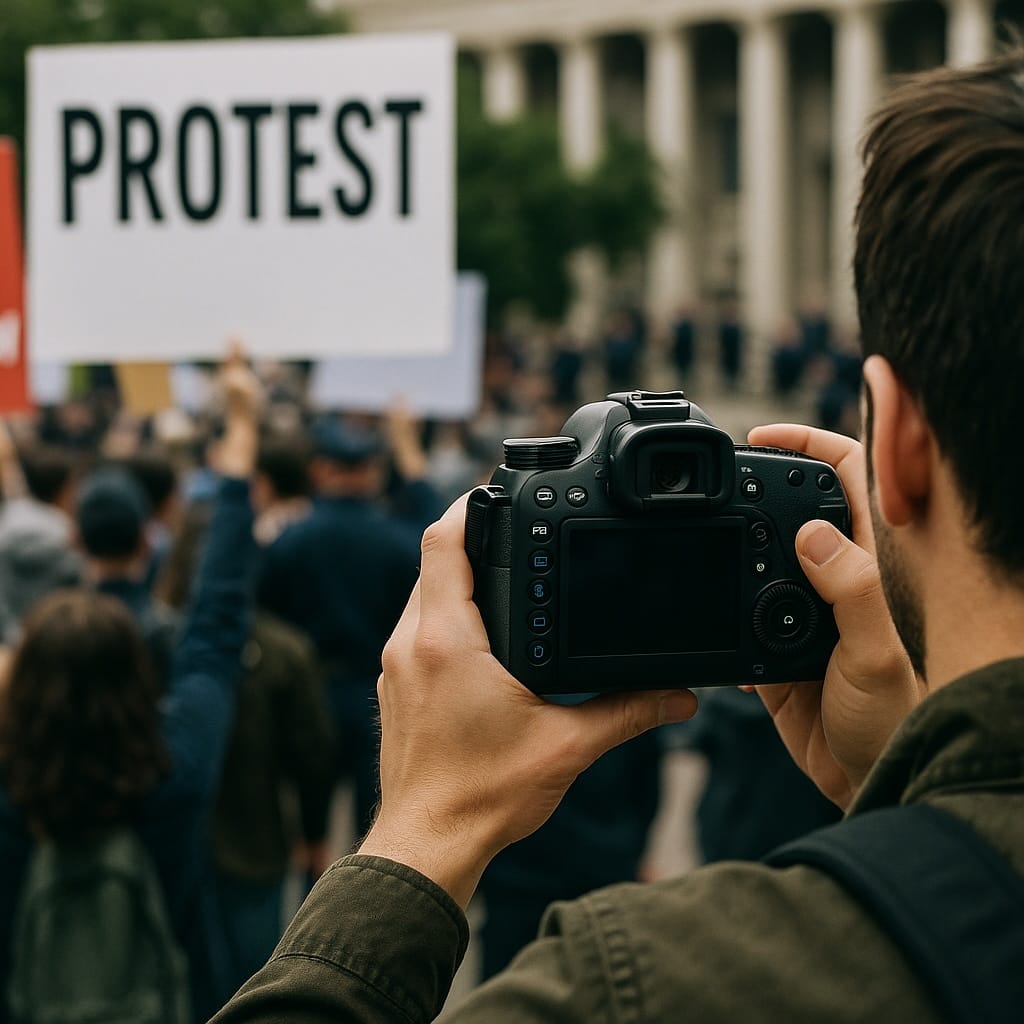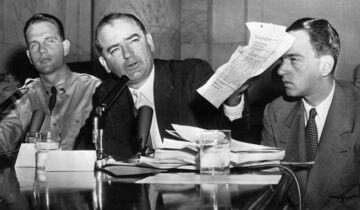I want to take pictures or shoot video at a protest
You have the right to record public events, including protests, but understanding the limits and protections is important.Your Rights
In public spaces: When you are legally present in a public area (such as streets, sidewalks, parks, or plazas in front of government buildings), you are allowed to photograph or film anything visible — including federal buildings, police officers, and other public officials. On private property: Property owners can establish rules for photography or videography. If you don’t have permission, you might be asked to leave.Police powers:
Officers cannot:- Confiscate or demand to view your images or recordings without a warrant.
- Delete your files under any circumstances.
- Order you to stop recording unless you are genuinely interfering with legitimate law enforcement operations.
- Stay calm — never physically resist a police officer.
- Ask if you are free to leave — if yes, walk away calmly.
- “What crime am I suspected of committing?”
- Politely remind them that photography is protected under the First Amendment and is not a reasonable suspicion of criminal activity.
If You Believe Your Rights Have Been Violated
- As soon as you can, write down everything you remember:
- Officers’ badge numbers, patrol car numbers, and agency names.
- Get witness contact information.
- Photograph any injuries you sustained.
📚 More Resources:
- ACLU: Protesters’ Rights
- Freedom Forum: Legal protections for photographers
- Constitutional Protest Guide



